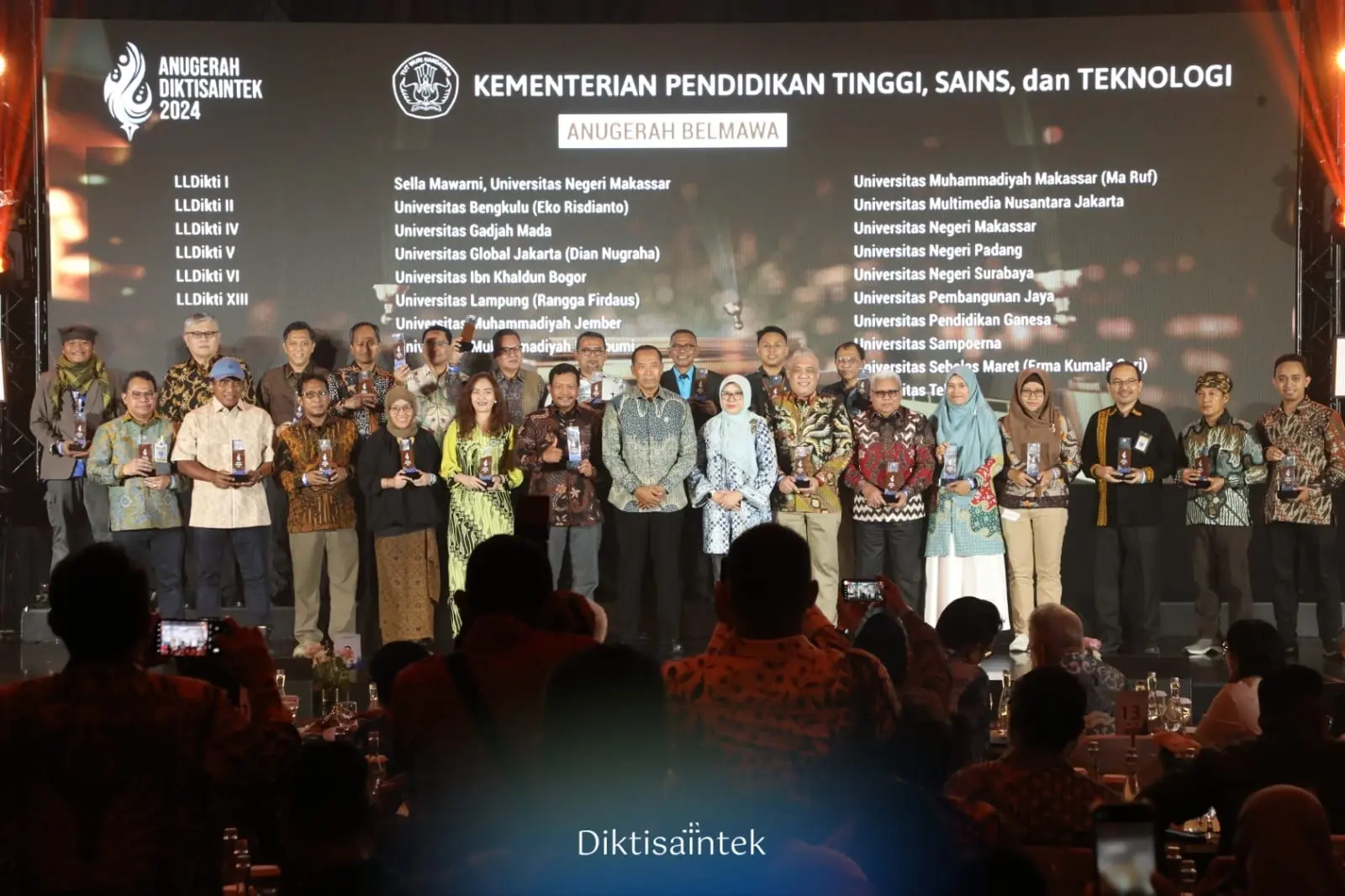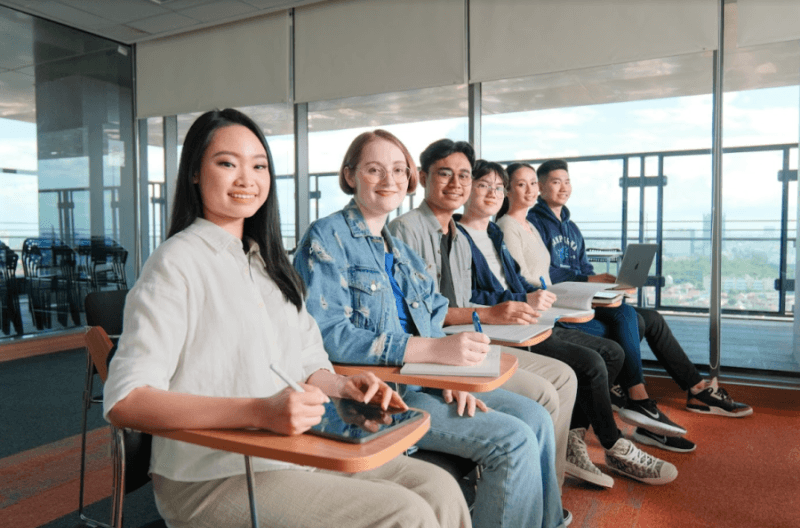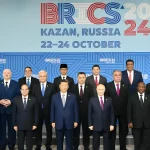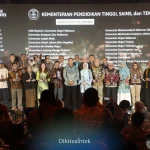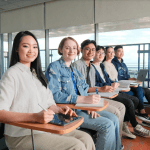02 May 2019
Extensive Reading: When Reading Can Be Fun and Enjoyable
News & Event,
News & Events Faculty of Education,
[vc_row type=”in_container” full_screen_row_position=”middle” scene_position=”center” text_color=”dark” text_align=”left” overlay_strength=”0.3″ shape_divider_position=”bottom”][vc_column column_padding=”no-extra-padding” column_padding_position=”all” background_color_opacity=”1″ background_hover_color_opacity=”1″ column_shadow=”none” column_border_radius=”none” width=”1/1″ tablet_text_alignment=”default” phone_text_alignment=”default” column_border_width=”none” column_border_style=”solid”][vc_gallery type=”image_grid” images=”2981,2982,2980,2979,2978,2977″ layout=”3″ gallery_style=”1″ load_in_animation=”none” img_size=”600×400″][vc_column_text]To date, reading culture has never been part of Indonesian society. In our schools, reading is also aimed at achieving the best score. This is why reading is almost always seen as a boring activity instead of an activity for pleasure.
In order to change this situation, Sampoerna University’s Center for Literacy at Faculty of Education invited a couple of influential academicians specializing in extensive reading from Extensive Reading Foundation based in Japan and some other Indonesian members of Extensive Reading Association on Saturday (4/27/ 2019) at Sampoerna University. Titled “Extensive Reading: Why and How”, the workshop was attended by many teachers from high schools and other universities in Jakarta and the adjacent areas.
Living currently in Japan, Prof. Marc Helgesen, Ph.D. came to share his insights and experiences. Here is the excerpt of the interview with the American-born scholar who is also a Board Member of Extensive Reading Foundation, Miyagi Gakuin Women’s University, Japan.
“What is the ultimate aim of the workshop?”
Marc Helgesen (MH): “We try to share in a very understandable way. ER is reading a lot of easy, enjoyable books. I want to share some of the research behind ER. We show teachers how to do it in their classrooms. This way, more students in Indonesia can acquire better level of reading fluency.”
“You mentioned earlier that Indonesia has no culture of reading. Why is it so?”
MH : “For historical reasons, it has never been part of Indonesian culture. There are things we can change. Bahasa Jawa and Bahasa Indonesia have no reading-for-pleasure culture.
Partially as a result of that, English is only taught as a classroom subject. We read for grades. There is plenty of evidence that if you do extensive reading, grades go up. Because you’re immersed in the meaning as opposed to studying separate items pieces of vocabulary and grammar.”
“How can everyone start with Extensive Reading (ER)?”
MH: “In ER, start with easy and interesting texts. Just like when we study our mother tongue. Start with picture books so that they get excited with the stories and learn and remember them. So they get the repetition they need. This is how ER is taught in a level appropriate way.
Test-oriented cultures like Indonesia and pretty much all of Asia focus too much on solving problems in exams. That doesn’t really help students in the long term and only helps get through tests. That doesn’t help us apply the knowledge.
So when we talk a lot about 21st-century skills (e.g. critical thinking, collaboration, creativity), we cannot memorize your way to that. You have to have the foundation to master all those skills. And the foundation is extensive reading skills.”
“How is your experience of teaching Extensive Reading in non-English-speaking countries like Indonesia?”
MH: “The learning processes is easy for speakers of Indo-European. However, for Asian speakers, because Asian languages were not of the same language family with English, the ‘jump’ is so difficult.
The other language specialists from RELO (Regional English Language Office) of the United States State Department have started this. About more than 20 years ago, extensive reading was unusual in Japan. Now it’s everywhere because a group of us set out to do research, publicize research, hold workshops for teachers, conferences to reach classroom teachers at every level. It made a difference.
Last year, creative readers have surpassed course books’ in revenue that a large publishing company generates in these recent years. It shows that there is an improvement in ER.
We also have several Indonesian teachers in various universities. They have examples from their own classrooms. This does make sense. I hope that we can share the success.
These are skills that Indonesia needs in the time of the burgeoning economy. Jobs in the 21st century will require high-level thinking skills, among which is ER skills.”
“Should young students read canons or the simplified versions of them?”
MH: “Indonesia has a history that reading English means translating it. Students begin learning English in junior high school in Indonesia. It starts as a grammar-based class. They didn’t look like anything like natural conversations or natural texts. Just grammar practice but they don’t learn how to carry on discourses, spoken conversations. They study words and grammar in isolation.
Also, because students are in junior and senior high school they have to take entrance exams. That is a different kind of task. The task was not learning English to communicate but to pass tests.
That is one reason why in East Asian countries extensive reading takes off in the universities because they already pass the entrance exams. Now they can make use of those words and grammar. And they can start working on the fluency.
So when we are in high school, everything was supposed to be difficult. English is like education, work harder. If you’re not sweating, you’re not doing it. No! I don’t think learning English is supposed to be hard.”
“How can we make our children love reading in this digital age when smartphones are more enticing than books?”
MH: “It’s no easy task but to start, let’s not consider phones as enemies. There are downsides of phone but most of the time actually when we use phones, we are reading something. Reading online and offline doesn’t really matter. But there is research that shows that people actually prefer longer things in paper. Even digital natives prefer reading books for longer stories. Maybe the enemy is attention span and multitasking. So if you read, let yourself focus on the material by turning off any notifications.”
Besides Helgesen, Thomas Robb, Ph.D. (English language specialist, chair of Extensive Reading Foundation) was presenting “Implementing an Extensive Reading Program: Opportunities and Challenges”.
The workshop was concluded by several sessions showcasing case studies in Indonesia. Christina Lhaksmita, Ed.M. of Sanata Dharma University, Anita Kurniawati, M. Hum. of Universitas Kristen Satya Wacana, Athriyana S. Pattiwael, M. Hum. of Universitas Kristen Krida Wacana, and Dr. Vera Syamsi, M. Hum. of Sampoerna University talked more about how to bring the books back into the classroom. (*/)[/vc_column_text][/vc_column][/vc_row]

